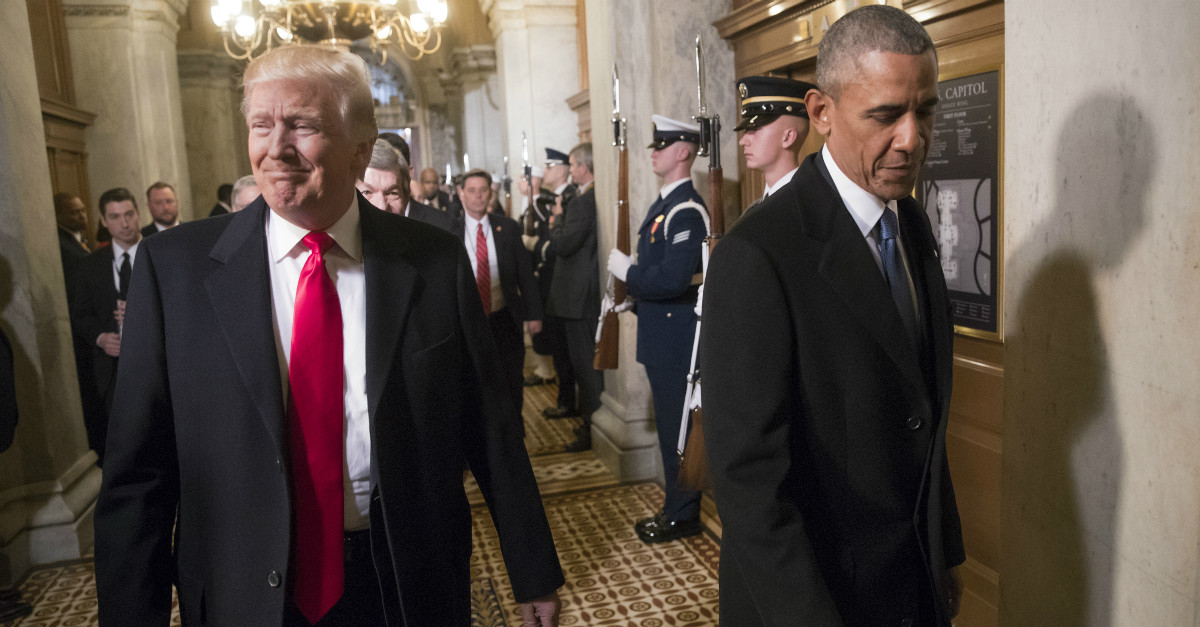When President Trump announced Neil Gorsuch as his choice to replace the late Antonin Scalia on the Supreme Court on Tuesday, I noted that his pick had an exceptional record on Fourth Amendment privacy rights issues from a civil libertarian perspective.
Videos by Rare
It’s also worth noting how bad President Obama’s choice to fill that seat, Merrick Garland, was in comparison.
RELATED: Trump’s Supreme Court pick Neil Gorsuch has a solid record of defending the Fourth Amendment
Despite efforts by some conservatives in recent years to promote criminal justice reform, the perception by many and certainly by most on the left is to characterize siding with government or the police when it comes to illegal search and seizure as a right-leaning position. Hence the headline from the left-leaning Salon when Obama announced his SCOTUS choice in March 2016, “Inside Merrick Garland’s troubling record: Why he could take the Supreme Court right in one very important regard.”
Salon’s Daniel Denvir writes:
Pointing to government-friendly rulings on police illegal searches and seizures and Guantánamo detainee rights, some criminal justice reform advocates are greeting President Obama’s nomination of Merrick Garland to the Supreme Court with skepticism.
No one is saying that Garland, the current chief judge of the D.C. Circuit Court, is a conservative. But there is concern that Garland, a former prosecutor nominated by a president with a penchant for nominating prosecutors, could hold the line on criminal law, or even move it to the right, at a time of growing consensus that the system must be radically reformed and downsized.
Denver then cites the Washington Post’s civil libertarian Radley Balko’s description of Garland via Twitter:
…It's just a boring, status quo, baffling pick from a president who allegedly wants criminal justice reform to be part of his legacy.
— Radley Balko (@radleybalko) March 16, 2016
Denvir adds, “Garland’s record is particularly troubling when it comes to his deference to police and prosecutors, including the suppression of evidence allegedly obtained by way of an unconstitutional police search” (you can see detailed list of Garland’s anti-civil liberties rulings here).
Now compare the analysis of Garland on these privacy issues to President Trump’s choice Neil Gorsuch, this analysis also coming from a progressive source. While I cited libertarian and conservative sources in my post Tuesday, left-leaning Salon also describes Gorsuch favorably on the Fourth Amendment front. Salon’s Mark Joseph Stern writes:
Libertarian-minded progressives may appreciate a notably Scalian streak in Gorsuch’s criminal decisions. Like Scalia, he sees the Fourth Amendment right to privacy as essentially property-based, providing strong protections for those in the home. Like Scalia, he can be skeptical of overreaching prosecutions, especially by the federal government, that could criminalize innocent conduct. (This view, while admirable, seems to emerge from a distaste for zealous prosecution of white-collar crime, such as corporate fraud.) And he appears interested in limiting qualified immunity, which protects government officials (including police) from lawsuits when they infringe upon constitutional rights.
RELATED: Here’s the one thing Donald Trump could do to really make our immigration system safer
Contrast this description of Gorsuch with how SCOTUSblog’s Tom Goldstein described Garland in 2010, “Judge Garland rarely votes in favor of criminal defendants’ appeals of their convictions. In ten criminal cases, Judge Garland has disagreed with his more-liberal colleagues; in each, he adopted the position that was more favorable to the government or declined to reach a question on which the majority of the court had adopted a position favorable to a defendant.”
This is marked difference in these justice choices, particularly, as Radley Balko notes, coming from President Obama who wanted criminal justice reform to be part of his legacy, and President Trump who has said little to nothing about such reform.
But it appears at the moment that those who believe our legal system is too often rigged against the poor and defenseless should be glad we will likely be getting Trump’s selection – and not Obama’s – for our nation’s highest court.



